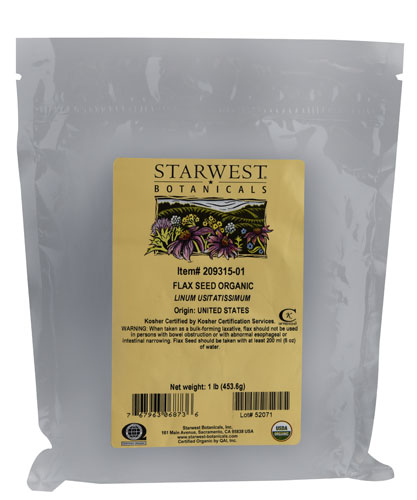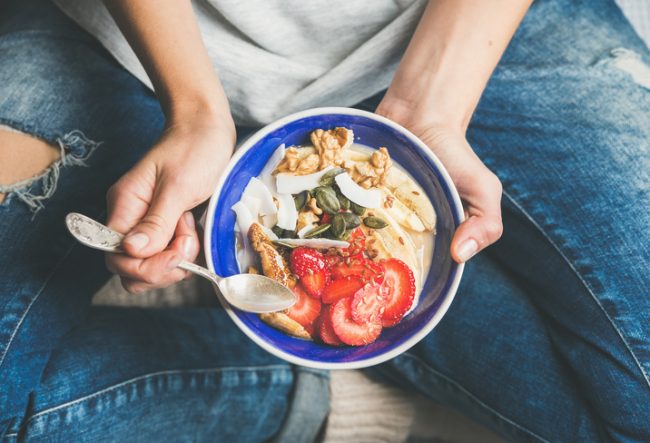If you're thinking about dabbling with a raw vegan diet, you may find yourself besieged with information, such as why you should try it out, how and when you should go raw, and/or the associated pros and cons.
Before believing or rejecting any opinions that may be out there, let’s take a closer look at the top myths linked to this lifestyle and get some healthy clarification. With a more balanced picture, you can decide what feels right for you.
1. You can ONLY eat fruits & veggies
While some raw vegans rely almost exclusively on fresh produce, particularly fruitarians, this approach is not for everyone—nor is it required, given the plethora of deliciously satisfying, healthy foods that still qualify as raw.
We’re talking nuts, seeds, homemade nut/seed milks and butters, raw hummus and dips, sprouted grains and legumes, sea vegetables, gently warmed soups and entrées, fermented items like sauerkraut, kimchi, and miso, crispy dehydrated munchies including crusts for dipping, stacking and layering, kale chips, energy bars, cookies, and more. How about raw vegan cheesecake? Chocolate truffles? Pizza? Your options are virtually limitless.
2. You must follow the 80/10/10 rule
As you venture into the raw food world, you may hear about the 80/10/10 diet, developed by Dr. Douglas Graham, a chiropractor and athlete. This plan derives most of its calories from carbs, mainly raw fruit—80 percent—with only 10 percent from protein and 10 percent from fat.
Despite its often zealous following, you are not required to follow the 80/10/10 diet to eat healthy and raw, nor does it make sense for everyone. For example, eating mainly fruit is not ideal for those sensitive to high levels of sugar, even in a natural form.
80/10/10 is also ill-advised for those who thrive with more protein. You may simply do better overall with a more evenly balanced ratio of carbs to protein to fat. The most nutritionally sound raw food menu will offer a comprehensive array of vitamins, minerals and essential amino acids, meet basic protein needs, and include at least a modest amount of healthy, raw fat daily for optimal wellness.
3. Eating this way will break the bank
While creating healthy, organic raw meals can be pricy, it’s also potentially very cost-effective, depending on your approach. Granted, if you seek out a wide array of exotic superfoods, out-of-season organic produce, high-end supplements and other specialty items, it will add up.
However, if you buy local, in-season organic produce with a focus on avoiding the “Dirty Dozen,” choosing conventional with “Clean Fifteen” produce, you can save a bundle—especially if you get your specialty items on sale!
Another budget-friendly tactic is snagging nuts, seeds, dried fruit, grains and legumes in bulk (like this 1-pound bag of organic flax seed). And don’t forget DIY. Making your own condiments, dressings, sauces, etc. is a great way to stretch a buck, and you’ll enjoy super fresh, wholesome meals as a result.
4. You have to be 100 percent raw
Many people commit to going raw with gusto, making sure that all food, drinks and condiments they consume are fully raw—never heated above 118 degrees Fahrenheit, the widely accepted cut off temperature for keeping food officially raw.
Others prefer the “high raw” path, meaning they eat mostly raw, but periodically include cooked items too. Their menu may be 80 percent raw, for example, with 20 percent cooked items, such as beans and legumes (which can only be eaten raw when sprouted).
So, no, you do not have to eat 100 percent raw to reap the benefits from a diet based in fresh produce, nuts, seeds, sprouts, etc. Many folks choose to be fully raw for periods of time, especially during warm weather, while adding soups and broths in winter. The key is making this approach work for you, so adjust as needed seasonally, when traveling, etc.
5. You will never need nutritional supplements
While a comprehensive raw vegan menu—rich in colorful produce and raw protein sources like flax, hemp, and chia seeds—provides you with all nine essential amino acids, there may still be key nutrients you’ll fall short on, which is why a high-quality multivitamin & mineral supplement is a good idea.
But that’s not only for raw vegans; it’s difficult to claim that any diet style covers all your bases for optimal nutrition through food alone, especially given depletions caused by the stresses of modern life, pollution, daily chemical exposure, caffeine, alcohol and many other factors.
To that end, most Americans, regardless of diet, could benefit from a comprehensive multi as well as EPA and DHA essential fatty acids. Happily, you can easily find high-quality vegan supplements—even “raw” formulations. Here’s to your health!




